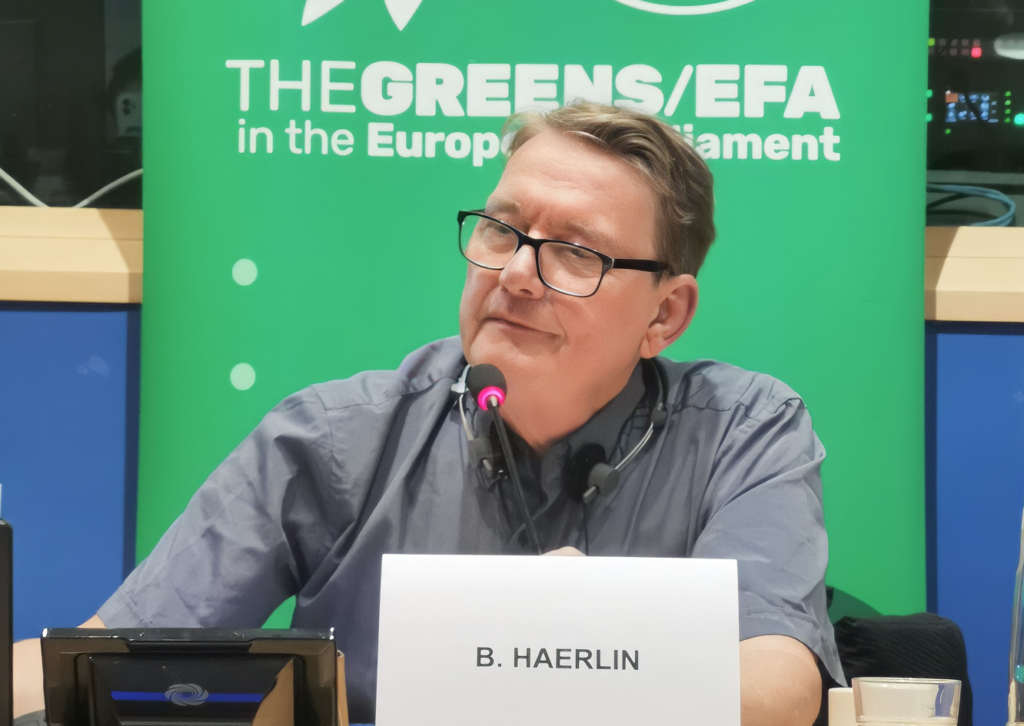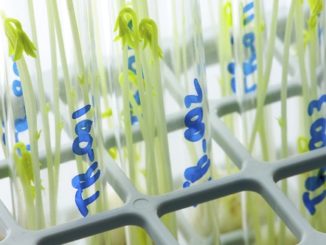
In Brussels, resistance is brewing against the European Commission’s bold plans for new GMO technologies (NGTs) in plant breeding, unveiled on July 5. The stage for this showdown was set at the 10th GMO-Free Europe Conference, a collaborative effort between the GMO-Free Network and the Green European Parliament group. Here, a diverse coalition of 200+ experts, practitioners, scientists, consumers, and policy-makers converged to dissect the Commission’s proposal from every angle. Ashley Parsons reports.
At the 10th GMO-Free Europe Conference, the European Commission’s vision for deregulating what it calls New Genomic Techniques (NGTs) aka new GMOs – under the guise of sustainability and innovation, raised red flags for participants.
German Greens/EFA MEP Martin Häusling, serving as the party’s agricultural spokesperson in the Agriculture Committee, minced no words in his critique. Häusling charged the EU executive with forsaking Europe’s well-entrenched precautionary principle in favor of an innovation frenzy.
He questioned the credibility of industry claims that NGT varieties would usher in climate adaptation and reduced pesticide usage, asserting that these promises crumble under scrutiny.
One of their primary concerns revolves around the secrecy that could cloak genetic modification in food and agriculture, potentially allowing agri-businesses to introduce undisclosed, patented products, thereby consolidating their grip on food production. “The proposed regulation is replete with flaws and gaping holes,” Häusling declared, “and we must not let it become European law.”
Austrian Green MEP Sarah Wiener, the rapporteur for the Sustainable Use of Pesticide Regulation (SUR), echoed these concerns. Wiener criticized the Commission’s intention to introduce GM plants into the EU market without rigorous risk assessments or proper labeling.
Wiener questioned whether this move would genuinely lead to a reduction in herbicide use, citing examples from countries where GMO cultivation had paradoxically escalated herbicide consumption. Moreover, Wiener highlighted the threat this initiative posed to organic farming, as nearby GMO fields risk contaminating crops, a blatant violation of the precautionary principle.
Fait accompli?
Outside the Brussels bubble, Michelle Habets of the Rathenau Institute spoke about Dutch civic attitudes regarding NGTs. In her presentation she argued that citizens see opportunities for NGTs, although there are doubts about long-term safety and about meaningful contributions to solving current challenges. She also highlighted a lack of trust towards companies developing the crops transparency and trustworthiness.
And so…
Will the European Commission heed the growing chorus of dissent or press forward with the contested proposal? This battleground over GMO deregulation could be a defining moment in Europe’s approach to agricultural innovation and consumer choice – but is it already too late?
Benny Haerlin of “Save Our Seeds”, believes the fight is not lost. “It is my experience that the GMO debate usually only starts when the broader public realises what lobbies and administrators have agreed upon. I am convinced that European citizens will not accept hidden GMOs in their food nor the release of GMOs into the environment with no safety check and no way to recall them.”
Taking a wider view, with elections coming in 2024, and with former Green Deal Commissioner Timmermans focused elsewhere now, time and momentum appear to be running out for Commission and many – but not all – aspects of the EU Green Deal.
There are many components to this supposedly flagship aspect of the EU’s workings. For various reasons – see article list below – a Faustian pact between the pesticide regulation (SUR) and the New GMOs/NGTs seems to have formed. With the SUR delayed, will the NGT push also stall before the finish line?
In the political wrangling of the Brussels institutions, there is no certainty, but there certainly are patterns.
For more visit the GMO-Free regions website.
More
Old Varieties and Short Production Circuits to Rebuild “Rural Solidarities”
EU Seed Law Reform and New Genetic Engineering – Double Attack on our Seeds
GMO Deregulation Delayed – Where Are We At, Where Might We Be Going?





